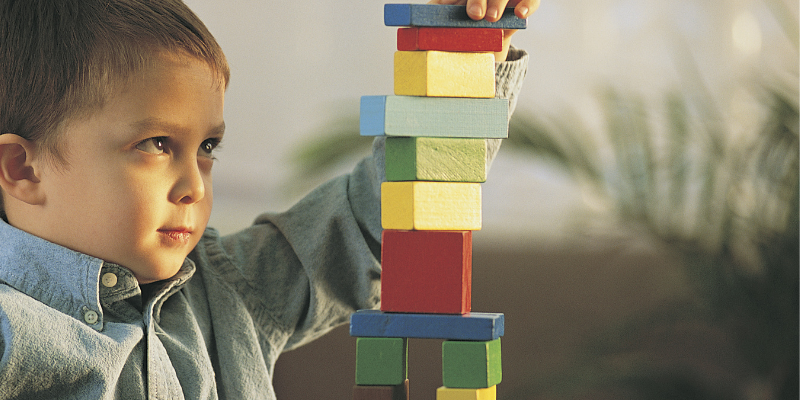
At Amen Clinics, we routinely track the reasons why people call our clinics. It helps us understand your pain points and helps us focus on providing you with the information and care you need. One of the most common phrases we’ve been hearing from parents since the pandemic began is that their kids are struggling with “school issues.” This translates into meltdowns, tantrums, anxiety, loneliness, difficulty focusing, and more. Are you noticing these issues in your kids too?
What’s Causing So Many School Problems?
School is such a fundamental part of a child’s life. In 2020, when the lockdowns and social distancing requirements were put into place, parents were scrambling to figure out how to navigate this new normal. Human brains don’t like change. We prefer—and need—some level of predictability in our lives. Children need this even more.
When schools switched to online learning, that transition was faced by kids and parents alike. Not only were some of the moms and/or dads having to work from home, but they also became the classroom supervisors too. This helped to give them a close look at the adjustment issues and behavior problems a lot of kids were developing as they accommodated these changes.
5 Unprecedented School Challenges Children are Facing
- Many kids are still in either hybrid programs or remote learning for school. This has led to feelings of loneliness, isolation, and disconnection from their friends.
- Children are experiencing stress and anxiety from trying to learn in new formats under frequently changing circumstances, as schools continue to adjust their programming.
- With few or no extra-curricular activities available for them to do with classmates and friends, it can feel like all work and no play.
- Many sports programs are on hold which limits the amount of body movement and exercises a lot of kids are getting.
- Distractions are everywhere! Without the kind of boundaries and rules that classrooms usually have, it can be much harder for certain kids to stay focused at all.
While children can seem remarkably resilient at times, it’s important for parents to pay attention to any significant behavior changes they see in their children, especially ones that have been magnified during the pandemic.
For instance, don’t overlook behaviors such as these:
- When children are unusually sad, lonely, or isolating in their rooms, it could be related to depression.
- If they are constantly fretting about all the uncertainties with school or having bad dreams, they could be developing an anxiety
- Children who are having a difficult time staying focused or sitting still for any length of time might have undiagnosed ADHD.
If you have concerns, talk to your kids about what you see and get them the help they need. Did you know that most parents wait about a decade after symptoms first emerge before reaching out to a mental health professional? The right treatment can make all the difference in the world for getting your kids back on track—even in these trying times. There are also things you can do to support the mental and physical health of your whole family.
Most kids don’t see a mental health professional until a decade after symptoms first emerge. The right treatment can make all the difference in the world for getting your kids back on track—even in these trying times. Click To Tweet5 Ways to Boost Your Kids’ (and Your Own!) Resilience Now
- Establish regular schedules and routines—including sleep—that provide daily structure, especially for the kids.
- Being sedentary increases depression, so plan times each week to go outside with your family and play a game, take a walk, or go for a hike together. The exercise and bonding will promote happier brain chemicals.
- Comfort food might be making things worse! Make sure everyone is getting plenty of fresh produces and clean protein, and don’t indulge in sugary treats—the spikes and dips in blood sugar increases stress, anxiety, and irritability. And avoid foods with artificial dyes like Red Dye 40, which has been linked to hyperactivity and other adverse reactions in some children. You don’t need any more of that!
- Limit screen time for kids, who are on it enough as it is. Help them develop new hobbies that involve things that interest them.
- Be sure to take care of your own mental health! To be a good messenger, you must model the message, so if you are struggling with depression, anxiety, grief, or an overload of stress, make the effort to get help for yourself.
School issues, behavior problems, ADD/ADHD, anxiety, and other mental health issues in children can’t wait. During these uncertain times, mental well-being is more important than ever, and waiting until life gets back to “normal” is likely to make a child’s symptoms worsen over time.
Love & Logic, the trusted leader for parenting skills, has recently become part of the Amen Clinics family because they understand that having a healthy brain is a requirement for successfully implementing parenting strategies and raising respectful and responsible children. At Amen Clinics, we offer in-clinic brain scanning and appointments, as well as mental telehealth, remote clinical evaluations, and video therapy for parents and children. Find out more by speaking to a specialist today at 888-288-9834 or visit our contact page here.





This is a brilliant article-one that should be on every principal and school administrators desk- and posted on every parent’s refrigerator to remind them that ” human brains don’t like change” as is stated, and people do not recognize this very simple statement. Children and adolescents need structure, consistency and routine and when they do not have this, often chaos results.
Comment by Michael Shaughnessy — March 15, 2021 @ 3:29 AM
We can’t always choose what happens to us, like Covid, but we can take our personal power back in our response! Social and Emotional Learning is imperative in these times, learning how to manage our emotions, grow through challenges and be strengthened by them, learning how to have healthy relationships, etc. check out our free lifespan programming that includes neuroscience, growth mindset and positive psychology! Programs for the home and parents too!!
Comment by Scarlett Lewis — March 15, 2021 @ 4:03 AM
This is sound advice. As a retired teacher, with 16 “struggling” great grands, I heartily agree and continue to use the same advice sharing it with all of my descendants.. Thank you for your not so common, “common sense”!
Comment by Jo Ellard — March 15, 2021 @ 7:31 AM
Another great article. Thank you for sharing.
Comment by Timothy Lee — March 16, 2021 @ 7:40 AM